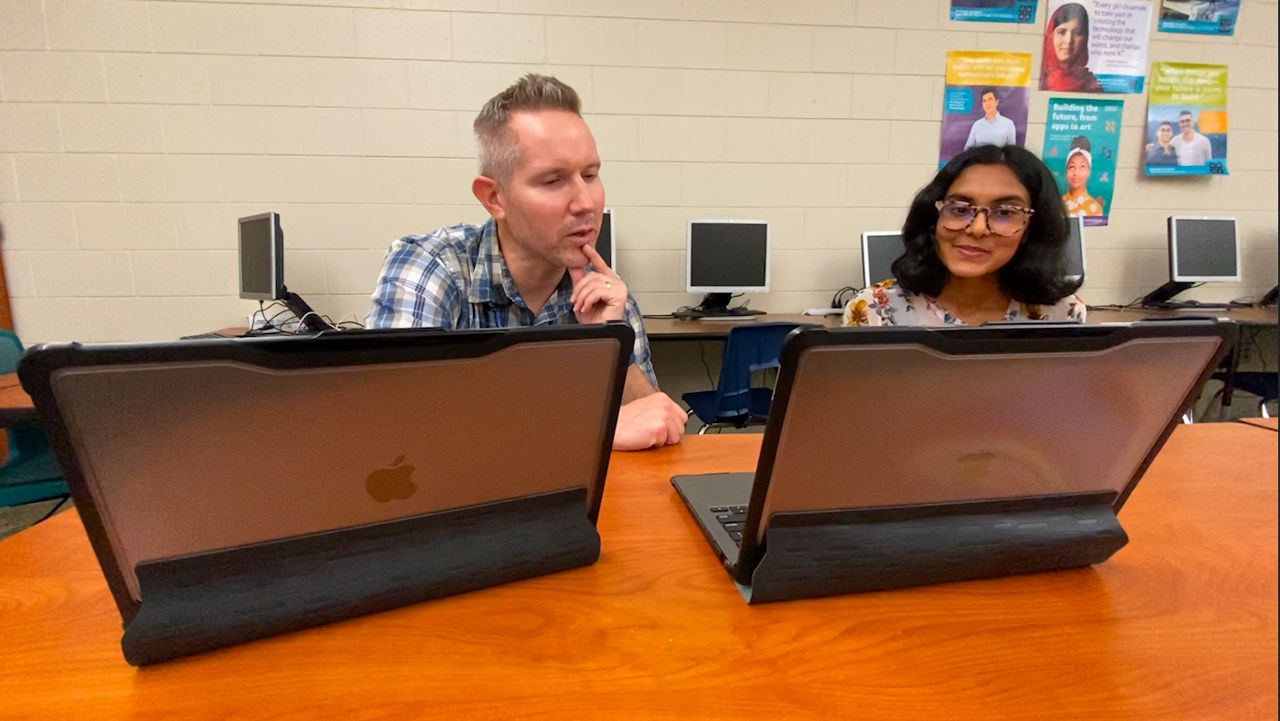SUAMICO, Wis. — Chad Behnke wants his students to know there’s more to computer science than just programming.
He teaches at Bay Port High School near Green Bay.
“Just having a general understanding of how software is made and the different hardware components they encounter on a daily basis,” Behnke said. ”Everything from a smart phone to an internet connected refrigerator.”
Part of the education includes cyber security: How networks, information and devices are protected from from attacks by nefarious sources.
“I’d love to say cyber security jobs will would go away, but they’re not,” Behnke said. “The cyber security world, like much like the rest of the digital world it’s ever evolving and new threats and techniques are developed everyday.”
With almost 500,000 open cyber security positions nationwide, U.S. Rep. Mike Gallagher said that’s a cause for concern as the number of high-profile attacks increase.
“Our success will ultimately come from recruiting and developing human talent,” he said. “It’s something both local governments and school districts need to be partnering with state governments. Then the federal government has a role to play to start to develop that cyber workforce of the future because right now it’s a massive vulnerability.”
Those educational partnerships and curriculum — like the one at Bay Port High School — were at the center of a recent roundtable discussion in Green Bay with Gallagher, education leaders and Microsoft President Brad Smith.
Smith said he expects to see programs that may help fill the cyber security void implemented in more and more schools nationwide.

“There will be more opportunities for kids, even before they get out of high school, to start to learn what they need to know then they can decide wether they want to make this a career,” Smith said.“There will be more opportunities for kids, even before they get out of high school, to start to learn what they need to know then they can decide wether they want to make this a career,” Smith said.
That includes people like Jovita Dsousa, a junior at Bay Port.
She has interest in pursuing a career in computer science — maybe even cyber security.
“It’s really important in getting students exposed to computer science in general,” she said about classes at the high school level. “I feel like a lot of people don’t really see it as a possible career choice or something they’d want to do because it’s just not something they know a lot about.”
Behnke says the need for people like Dsouza isn’t going away.
“I don’t see the cyber security job market shrinking anytime soon,” he said. “If anything, it’s going to grow.”










